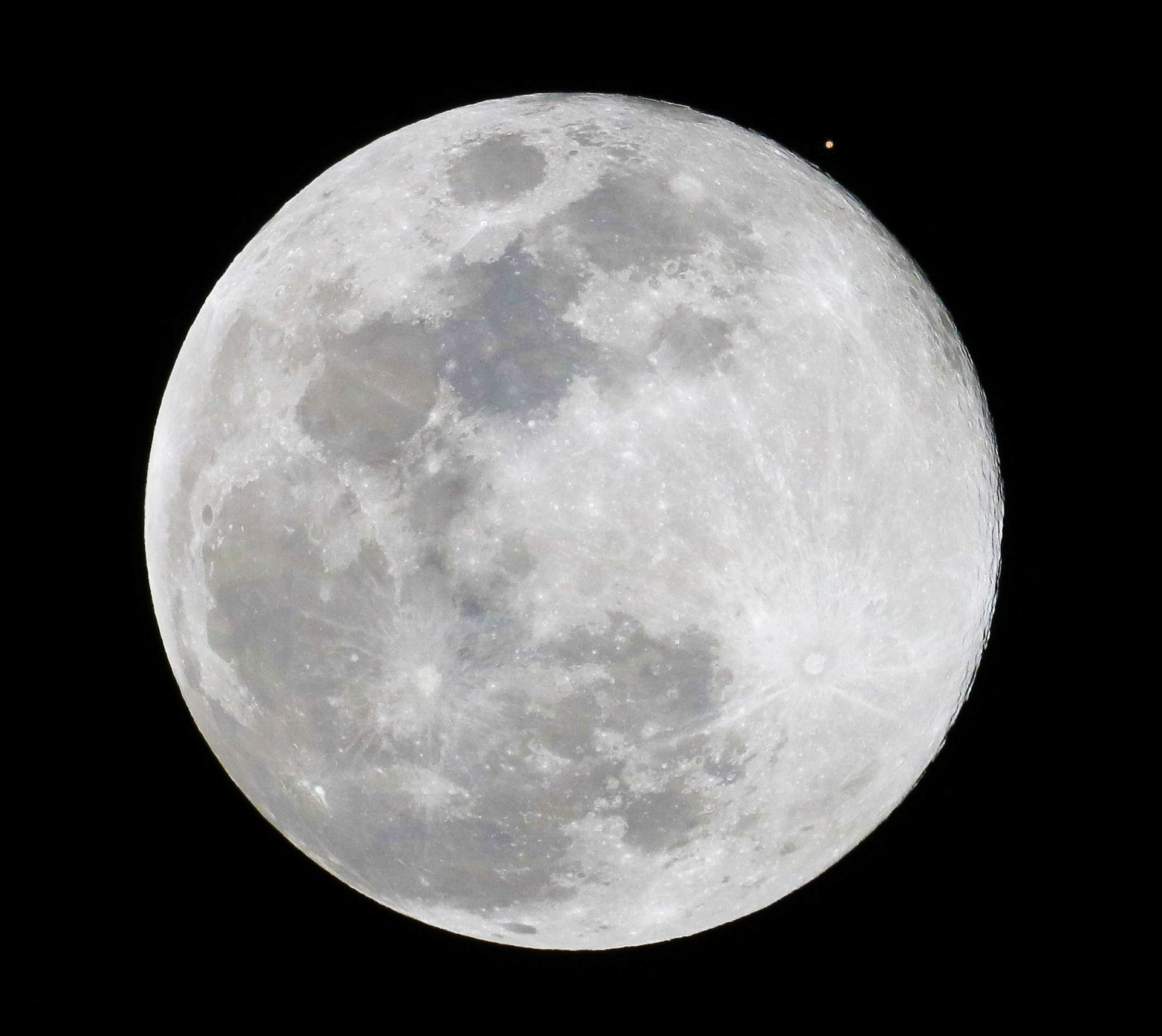The most recent lunar occultation of Mars that was visible from the United States occurred on December 7, 2022. A handful of these events occur every few years around each Martian opposition, but they are usually only visible from a small portion of Earth, often over the ocean or in polar regions. The next lunar occultation of Mars visible across most of the United States will happen on the night of February 4–5, 2042. There are similar occultations of Mars in 2035, 2038, and 2039 visible in narrow swaths of South Florida and the Pacific Northwest.

This photo was taken with a handheld Canon 80D and a 600 mm lens. Settings were 1/2000 sec, f/8, ISO 400. The image was cropped and lightly edited in Adobe Lightroom.
The Moon also periodically covers Venus, Jupiter, Saturn, and the Solar System’s more distant planets. A good resource on lunar occultations is In-The-Sky.org, which lists events where the Moon will block out a planet or a bright star. Be sure you choose your location on the upper-right corner of the page and toggle year by year to plan future viewing opportunities.
Viewing these kinds of events can be breathtaking and humbling. In 2012, I was lucky enough to observe the transit of Venus in front of the Sun, something that only happens twice every 121 years.
Seeing Mars, twice the size of the Moon, rising above the lunar horizon like a rusty BB pellet next to a dusty volleyball provided a perfect illustration of the scale and grandeur of the Solar System. Similarly, viewing Venus dwarfed by the Sun was a revealing moment. The worlds accompanying Earth around the Sun are varied in size, shape, color, and composition.
In one glance, an observer can see the barren, airless lunar surface and a cold, desert planet that once harbored rivers, lakes, and potentially life, all while standing on our own planet, an oasis in the cosmos. One thing that connects them all is humanity’s quest for exploration. Today, robots are operating on or around the Moon and Mars. Governments and private companies are preparing to return astronauts to the lunar surface within a few years, then moving on to dispatch human expeditions to the red planet.
Plans to land astronauts on the Moon are already in motion, but significant financial and technological hurdles remain for a crew mission to put humans on Mars. But for a short time Monday night, it looked like there was a direct path.

